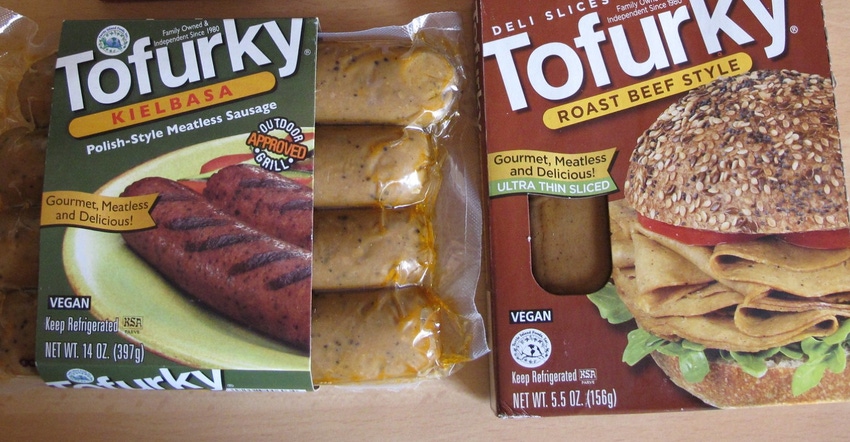Judge declines to block Missouri law during hearing, while arguments were heard Monday in Arkansas challenge.

Several states have taken actions to uphold whether plant-based food companies can use meat terms on their labeling packages, and new court cases continue to determine the future fate of the labeling. In Missouri, a federal judge declined to block a law targeting the "fake meat" labeling, while in Arkansas, plant-based protein supporters are asking a judge to block the state’s attempt to set meat labeling requirements.
In 2018, Missouri legislators passed a bill requiring the state abide by its definition of meat in an effort to prohibit misrepresenting any product as meat if it doesn’t come from a slaughtered animal. Supporters of the measure said the law was needed to ensure consumer transparency.
However, the ACLU of Missouri, the Animal Legal Defense Fund, the Good Food Institute and plant-based company Tofurky filed a complaint alleging that the law violates the Dormant Commerce Clause by discriminating against out-of-state companies to protect in-state meat producers and the Due Process Clause by being so vague that it’s impossible for companies to know what is legal and what is not.
U.S. district Judge Fernando Gaitan Jr., in an opinion issued in early October, noted that Tofurky products’ labels would not be misleading, and therefore, they should not have any concerns with how the law is written.
“The statute only prohibits companies from misleading consumers into believing that a product is meat from livestock when it is, in fact, plant based or lab grown,” the judge wrote.
“The court agrees and finds that plaintiffs have shown no risk of irreparable harm because their labels truthfully disclose that their products are plant based or lab grown, and the Missouri Department of Agriculture has advised that products with these types of statements on their labels do not misrepresent themselves. Thus, plaintiffs have not shown that they are at any risk of either prosecution for violating the statute or that there is any need to change their labels or advocacy efforts.”
Mike Deering, president and chief executive officer of the Missouri Cattlemen’s Assn., was instrumental in helping craft and pass the 2018 laws.
“This legislation wasn’t written willy-nilly with some bogus assumption that the law wouldn’t be challenged,” Deering said in an email statement to Feedstuffs. “We knew there would be some that felt it was their constitutional right to deceive people, so we worked hard on creating legislation that could withstand a court challenge. This law simply requires marketing with integrity. It doesn’t keep these products off the shelves or do anything to hurt the business. Tell the truth, and there won’t be any issues.”
Deering recognizes that the fight is far from over.
“Missouri was the first state to lead legislation to require marketing with integrity when it comes to fake meat. We intend to keep the law and will not back down. Many states have followed our lead by passing similar legislation, and they are counting on our victory. We have full confidence in the Missouri attorney general and his team to defend the law vigorously on appeal,” Deering said.
The coalition also sued Arkansas, saying a similar law in that state censors speech, and a similar law in Mississippi is also in litigation. Other states with labeling laws include Montana, South Dakota, Louisiana and Wyoming.
In a hearing on Monday, Tofurky sought an order from the federal district court to block Arkansas’ meat labeling law while a First Amendment challenge plays out. In August, the same coalition asked the court to issue a preliminary injunction to stop enforcement of the law while the case is being decided.
The Arkansas Truth in Labeling Law (Act 501) includes the following definitions:
Beef: the flesh of a domesticated bovine, such as a steer or cow, that is edible by humans.
Pork: the flesh of a domesticated swine that is edible by humans.
Poultry: domestic birds that are edible by humans.
“If the court does not decide in Tofurky’s favor, the company will be forced to decide whether to create new labels for Arkansas or stop selling its products in Arkansas altogether. In the end, consumers are going to suffer if there are fewer products available on supermarket shelves,” Good Food Institute director of policy Jessica Almy said.
About the Author(s)
You May Also Like



.png?width=300&auto=webp&quality=80&disable=upscale)

